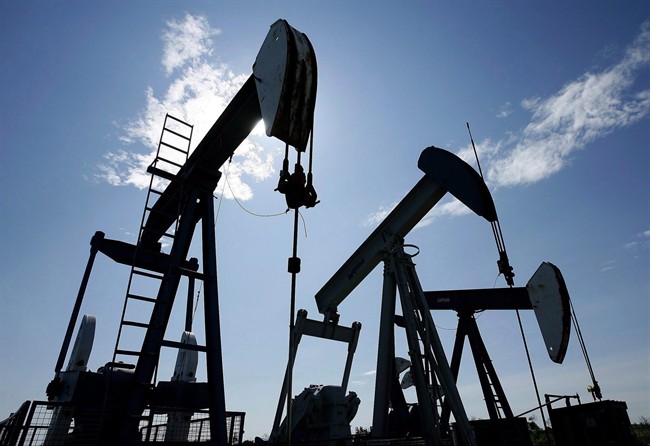The tight relationship between the Canadian dollar and the price of oil that has held for the last 10 or 15 years is starting to unravel, an expert argues.

“Our energy sector has been, and still is, one of our more important natural resources exports,” Bipan Rai, executive director of foreign exchange at CIBC Capital Markets, said. “As a result, our currency trades according to how well that export is doing.”
Oil and the dollar started rising and falling together in about 2003 or 2004, when the price of oil rose and demand increased from strong economies in China and the United States.
READ MORE: Canadian dollar, TSX get boost from higher oil prices
“What we saw then was that the Canadian dollar got much stronger,” Rai explained. “If you recall, in the mid-to-late-90s, the Canadian dollar was trading very weak, but that all changed as soon as oil prices began to reach $100 a barrel.”
“There was more of a demand for it, and certainly we did see a demand for production from the oil sands sector.”
WATCH: It’s been struggling for some time, but the Canadian dollar is now stronger than it has been in months. And as Shallima Maharaj reports, both businesses and snowbirds are counting every penny.

Now that oil prices seem to have stabilized at a lower level, other factors compete with oil to nudge the value of the dollar up or down. The main one, Rai says, is Canadian bonds, which look attractive to foreign investors in a context of global economic instability.
“That makes sense, given that Canada is still a triple-A-rated credit, in a shrinking pool of triple-A-rated credits. We have a stable monetary policy regime, we have a stable government, and a history of credibility.”
“Canada looks all that much more appealing to a foreign asset manager that’s looking for a place of stability.”
Foreign investment in real estate in Toronto and Vancouver is also going to influence the dollar, as will the performance of the U.S. economy, he says.


Comments